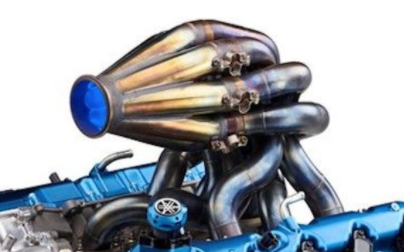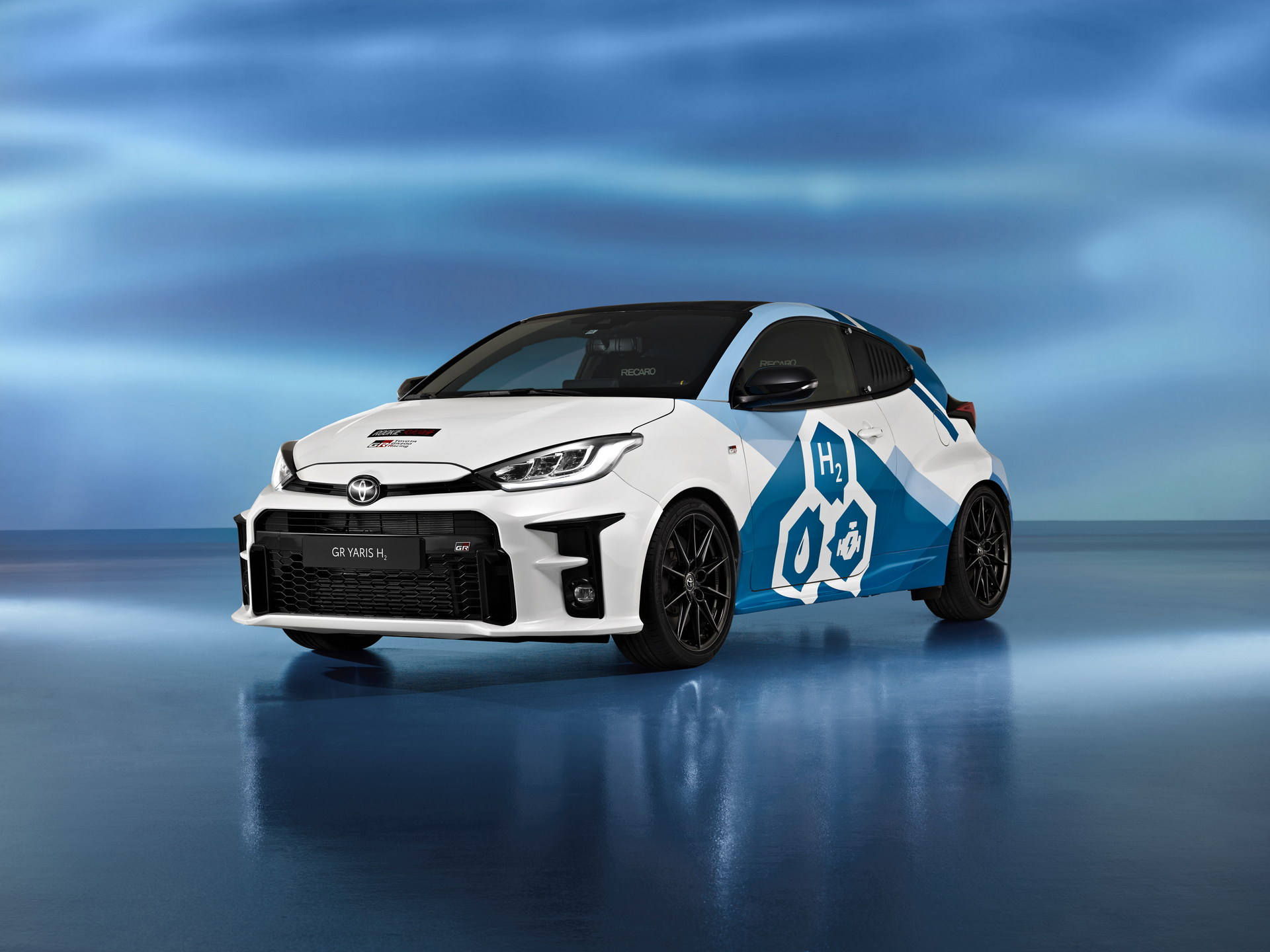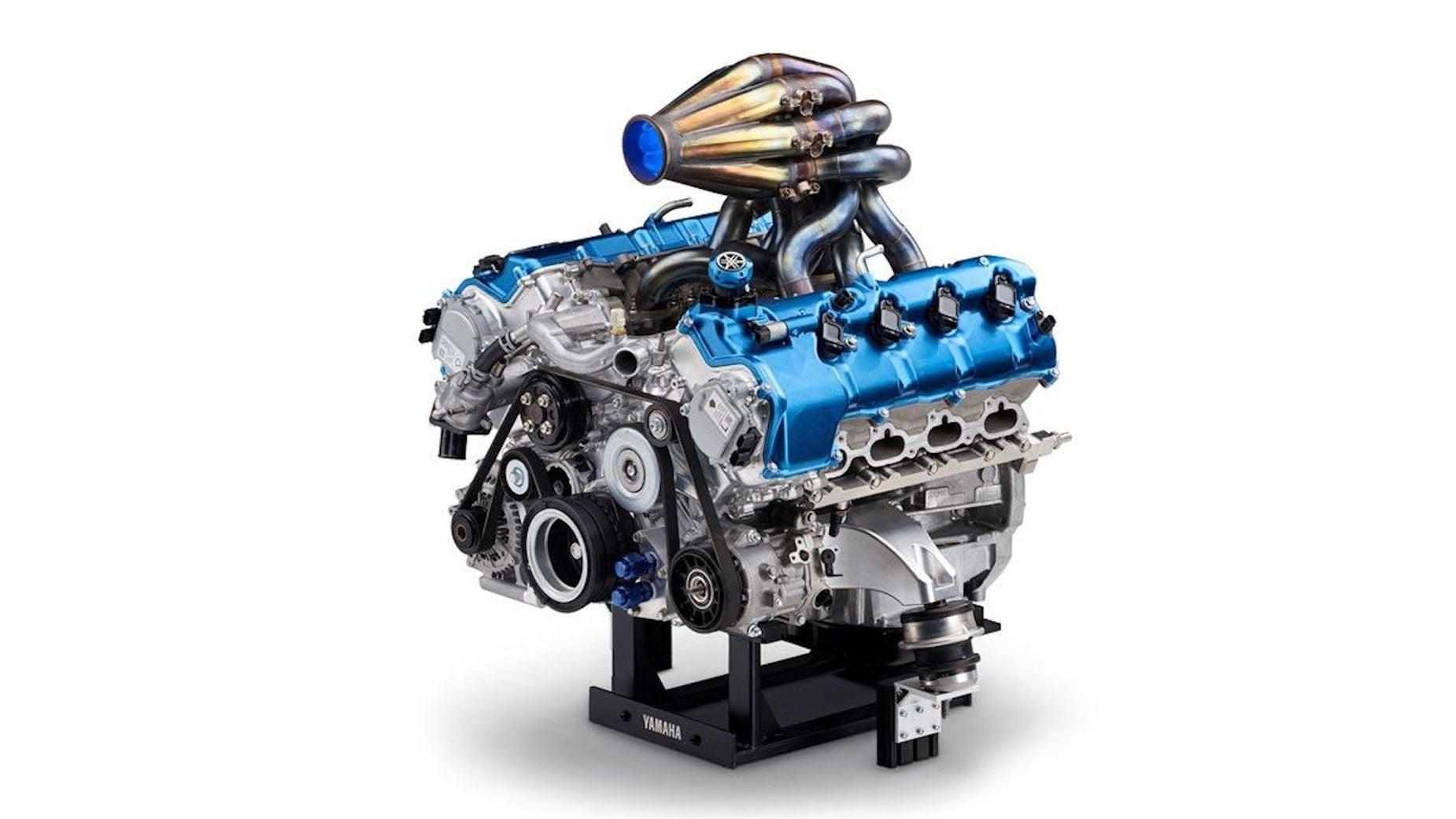Toyota And Yamaha Are Developing A 455 HP V8 That Runs On Hydrogen
The engine comes from a coalition of five Japanese manufacturers focused on keeping combustion alive: Toyota, Yamaha, Mazda, Kawasaki and Subaru
V8 lovers rejoice! There may still be space for eight cylinders in the future of automobiles. That's especially true if Toyota and Yamaha are successful with their latest venture.
The two Japanese companies are coming together to create a 5.0 liter, naturally aspirated V8 that runs on hydrogen. It's based on Toyota's existing gasoline powered V8 that is used in the Lexus RC F, according to AutoCar.
Just about everything has to be changed – as you may imagine – to get the engine to run on hydrogen. It's got different injectors, heads and intake manifolds among other changes.

One of the wildest differences though has to be the crazy eight-into-one top-mounted exhaust manifold. It looks both insane and gorgeous – which is perfect. Yamaha claims it creates a distinct high-frequency sound.
Yamaha says it'll make 455 HP at 6,800 rpm and 398 lb-ft of torque at 3,600 rpm. That's a bit down on power from the original V8 it is based on, but can we really complain?
A Yamaha engineer explained how the hydrogen engine – though similar to a gasoline power plant – feels much different.
"Hydrogen engines have an innately friendly feel that makes them easy to use even without resorting to electronic driving aids," Takeshi Yamada said.
Yamaha says development of the hydrogen car engines by Yamaha began about five years ago — working with Kawasaki on potential applications for these types of engines in motorcycles.

Toyota is also no stranger to hydrogen power. Their Mirai is the only vaguely successful hydrogen-powered production car. They also run a hydrogen-powered Corolla in Japan's Super Taikyu race series. The company has also showcased a hydrogen-powered GR Yaris with similar technologies found in the V8.
Toyota hasn't been very quick with embracing fully electrified vehicles, and that has come from the top down. The company's CEO, Akio Toyota made a speech at last year's Japanese Automobile Manufacturer's Association press conference saying "Carbon is our enemy, not the internal combustion engine."
Props to Toyota for enjoying hearing small explosions thousands of times a second. I totally get it.
Obviously, hydrogen has a long way to go in order to get mass market appeal in the U.S. That long way includes explaining beyond like three cities on the west coast. But, this is a start to making sure there is still a place for us combustion-friendly people in an increasingly electrified future.
